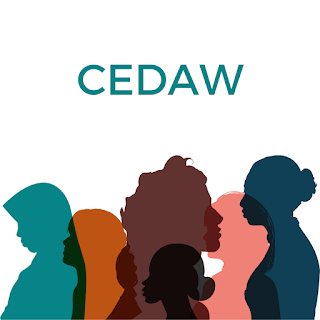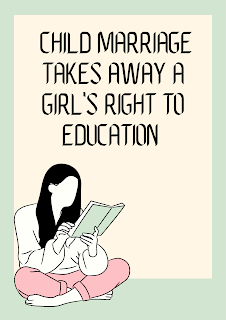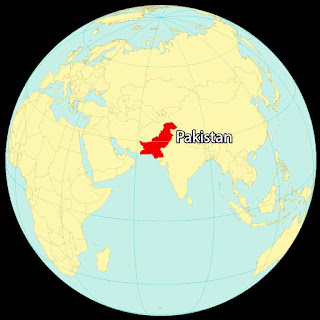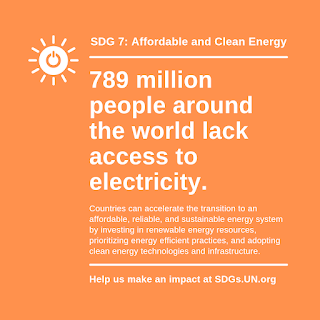CEDAW
The United Nations General Assembly passed the Convention on the Elimination of All Forms of Discrimination Against Women (CEDAW) in 1979. It is an international treaty that comprises of a preamble and 30 articles. This treaty defines what constitutes discrimination against women and lays out a plan for national action to put an end to it. When a country ratifies this Convention, it is legally obligated to implement its terms. Furthermore, the ratifying state agrees to produce national reports on the steps it has taken to comply with treaty commitments.
Article 10 of this convention addresses women's educational rights. It requires states to offer equal educational opportunities to men and women. Females must have equal access to education, including schools, curricula, scholarships, vocational training, and other resources. There should be no gender stereotypes, and women should be encouraged and supported to pursue higher education. Rural women should have access to the same educational resources as their metropolitan counterparts. They should get general, professional, and technical education, as well as the opportunity to participate in extracurricular and athletic activities.
Female education in Pakistan
Provision 25 A of Pakistan's constitution says that the state is required to provide free and obligatory education to both men and women; nevertheless, the state has not been very effective in executing this article of its constitution. According to the World Economic Forum's 2022 Global Gender Gap Report, Pakistan ranks 145/146 on Global Gender Gap Index. Despite the fact that Pakistan adopted CEDAW in 1996, it is apparent that there is still more work to be done to eliminate gender discrimination. Women enroll in substantially fewer degree-level courses in Pakistan than men, although accounting for more than half of the Pakistani population. The situation is considerably worse in Pakistan's rural and tribal areas, where only 3% of women have access to higher-level education.
Why CEDAW is not sufficient to protect women
in educational institutions of Pakistan?
There are many reasons why women's educational rights are not sufficiently protected under CEDAW in Pakistan, leading to educational inequality in the country. The main issue is the patriarchal gender norms that exist in Pakistan; women are supposed to stay at home and take care of the home, while men are viewed as the family's primary provider. The majority of Pakistani households have this patriarchal mentality; they believe that a son's education is more valuable and necessary than a daughter's since the son will work and get money while the daughter will be married off to another family. Therefore, spending money and time on my daughter's education will be a waste. Therefore, it is accurate to state that no law—domestic or international—can truly aid women until patriarchy is entirely eradicated from our culture.
Terrorist actions have also hampered women's education in Pakistan; many militants are opposed to women's education, and these groups have been particularly powerful in KPK and Swat, where they have destroyed several schools in the recent past. Apart from this, poverty and socioeconomic barriers also play a significant role in preventing women from obtaining university degrees, as many families find it extremely difficult to fund their children's education, even if they are willing to send their daughters to college.
Increasing the effectiveness of CEDAW in Pakistan
Laws such as CEDAW can only be effective in our society when women recognize their own worth and legal rights. Our government, in collaboration with the media, non-governmental organizations, and significant public personalities, must launch programs to raise women's knowledge of their fundamental human rights. A nation with more than half of its population undereducated or illiterate is doomed to fail sooner or later, thus it must be everyone's top concern to ensure women's right to education, otherwise our nation will perish.
The first and most important step is to raise public awareness about women's education. Government should establish and initiate plans and regulations that encourage individuals to send their daughters to educational institutions. The media must also play a role in raising public awareness about the importance of women's education and how a nation can crumble if its women are not empowered. More politically informed women, such as those who work for non-governmental organizations, should visit schools and colleges to encourage young girls to study and to inform them of their legal rights.
Policymakers at the district level should be urged to increase female enrollment in educational institutions. Women should be given access to vocational training programs. Furthermore, the government should announce specific scholarships for females and launch a conditional cash transfer plan so that households living below the poverty line can send their daughters to college. Finally, colleges should be encouraged to implement distant learning facilities so that ladies from rural and tribal areas can receive quality education as well.
Author: Amna Waseem
amnawaseem126@gmail.com




Great comments made💕
ReplyDeleteThank you for your valuable feedback
Delete